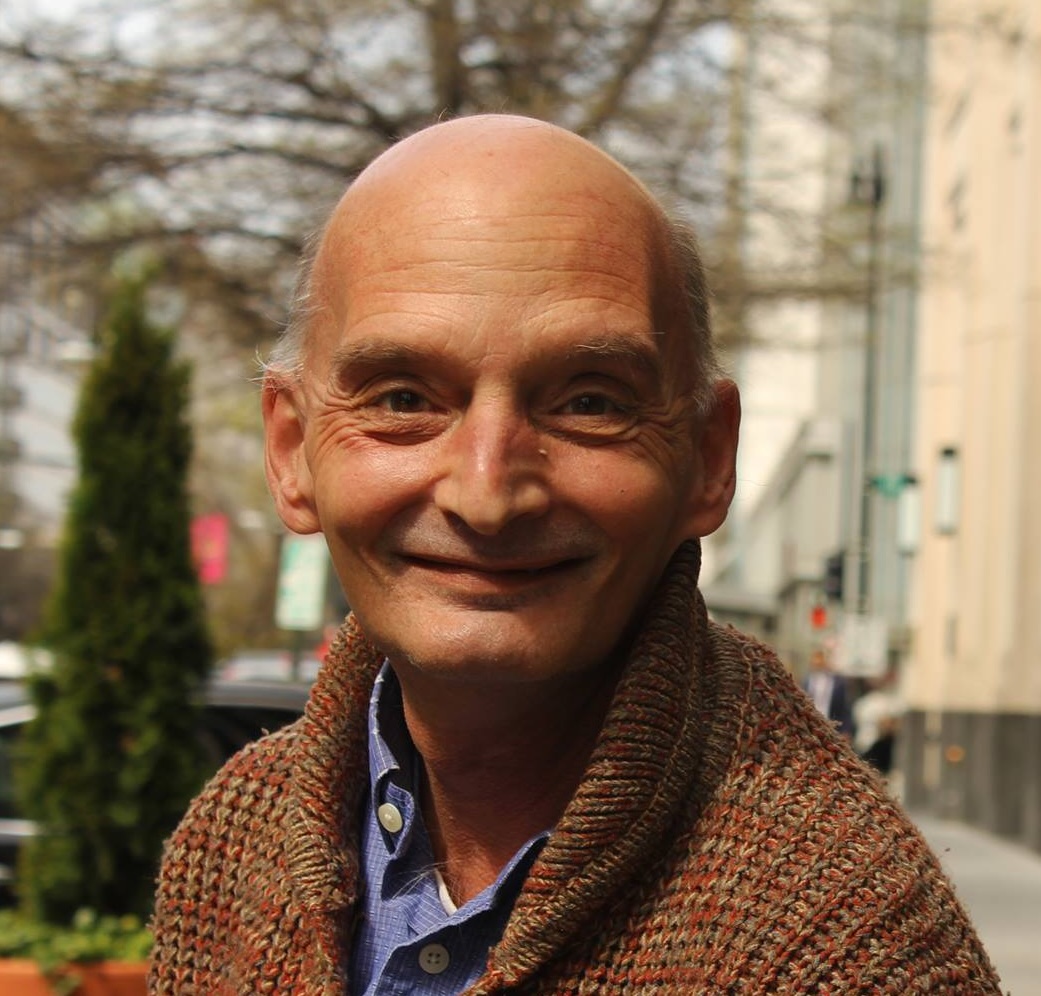
The Coalition on Human Needs Mourns the Passing of Colleague David Elliot
David Elliot, a staff member of the Coalition on Human Needs since 2016, passed away this week. He had struggled with cancer in a long and difficult illness. We will miss him very much.
 David served as CHN’s Voices for Human Needs blog editor starting in 2019. He had years of experience as a journalist, including five years with the Austin American-Statesman in Texas. He brought great writing skills to his blog posts, making them clear and engaging across all the human needs issues CHN covers. He was especially good at lifting up the voices of people who needed or benefited from services. As several of our current and former staff have remembered, David’s passion for social and economic justice was unflagging – and longstanding. Our former colleague Nicolai Haddal, who had worked with David before they both came to CHN, remembered David’s work to oppose the death penalty. He covered Texas’ callous disregard of the rights of inmates on death row in 1993, where legal experts found Texas failed to address claims of innocence and allowed inmates subject to the death penalty to go without representation. He reported on Ruben Cantu, a man awaiting execution despite credible claims of his innocence. Several months later, Ruben Cantu was executed, with subsequent reporting agreeing with David’s earlier accounts that he may well have been innocent. David brought that experience of reporting on injustice to his later work for the National Coalition to Abolish the Death Penalty.
David served as CHN’s Voices for Human Needs blog editor starting in 2019. He had years of experience as a journalist, including five years with the Austin American-Statesman in Texas. He brought great writing skills to his blog posts, making them clear and engaging across all the human needs issues CHN covers. He was especially good at lifting up the voices of people who needed or benefited from services. As several of our current and former staff have remembered, David’s passion for social and economic justice was unflagging – and longstanding. Our former colleague Nicolai Haddal, who had worked with David before they both came to CHN, remembered David’s work to oppose the death penalty. He covered Texas’ callous disregard of the rights of inmates on death row in 1993, where legal experts found Texas failed to address claims of innocence and allowed inmates subject to the death penalty to go without representation. He reported on Ruben Cantu, a man awaiting execution despite credible claims of his innocence. Several months later, Ruben Cantu was executed, with subsequent reporting agreeing with David’s earlier accounts that he may well have been innocent. David brought that experience of reporting on injustice to his later work for the National Coalition to Abolish the Death Penalty.
David’s own path in life was not easy. Our co-worker Leo Nguyen remembered a project in which David told some of his own story for CHN’s blog. Here is what David wrote:
“I grew up in the worst and best of circumstances. Worst, because I lost my mom to gun violence when I was 18 months old. Sometime later, I was adopted (my last name used to be Van Wagenen; now, of course, it is Elliot). My adoptive parents divorced a couple of years after that; unhappily, my adoptive mother never had the skills to raise three kids on her own. My older sister and brother left home when they were 17; I left when I was 16. But I also grew up in the best of circumstances. You see, someone always had my back — always. It could have been a teacher, a counselor, a social worker, or one of the many friends I have made, friends who are my family, friends who would give their all for me. And I had access to the best public schools — an accident of geography and zip code that all too many Americans lack. My circumstances, worst and best, imbued and inculcated in me a fierce desire for social and economic justice. My circumstances taught me empathy and kindness. They taught me that what we have, we are required to give. This drives my work at CHN.”
That says so much about David. His generosity of spirit meant he focused on the people who helped him and the public schools he benefited from. Out of his life experiences came his “fierce desire for social and economic justice,” which he brought to his work at CHN – we are indebted to him for it.
We also remember David’s passion for baseball and basketball – former colleague Richelle Friedman gave him a book about major league ballparks that he treasured, and he communicated enthusiastically each year about March Madness. We remember his love for Isla Mujeres in Mexico, which was his regular beloved vacation spot, and his commitment to his friends and his sister Jan.
David’s colleagues speak of his generous spirit, his quickness to praise others’ work, and his kindness. He was a mentor to his younger colleagues and to many student interns, whose writing he did much to improve.
David’s passion for justice led him to be a devoted tracker of the courts. One of his blog posts covered all the times the first Trump administration lost in the courts, citing a report showing 53 losses and only 5 wins in 2019. Things are tougher now, which he would be the first to recognize, and rail against.
David’s friend and colleague Nicolai summed up our feelings by saying “There will simply never ever be another David Elliot.” But we can be guided by his desire for social and economic justice. David’s fierce but humane commitment is his legacy to us, and we’re grateful for it.

